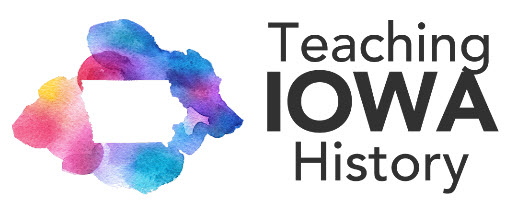George Thomas, Francis Henry Frank, Joseph Eugene Joe, Madison Abel Matt and Albert Leo Al, were five brothers from the Sullivan family of Waterloo, Iowa. After the attack on Pearl Harbor in 1941, the brothers enlisted in the United States Navy with the understanding that they would serve together. After some hesitation, the Navy agreed and the Sullivans were assigned to the USS Juneau in February 1942. The ship was damaged at the naval battle at Guadalcanal and was destroyed on November 13, 1942, while on the way to be repaired. The Battle of Guadalcanal lasted from August 1942- February 1943 and was fought between American and Japanese forces near the Solomon Island of Guadalcanal in the South Pacific. Japanese troops landed on the island in July of 1942 and began to construct an airfield. In August, the Allies arrived and began to engage in their first major offensive in the Pacific theater as they attempted to shut down the airfield. By January, US troops were able to land on the island. By February, the Japanese were outnumbered and forced to evacuate the majority of their remaining troops. Throughout the battle, the Japanese lost a total of 24,000 men while the US lost 1,600, including the Sullivan brothers. The death of the brothers was due to a torpedo striking the ship from Japanese submarine I-26, causing the ship to explode. Believing all aboard the USS Juneau had died, Captain Gilbert C. Hoover of the nearby USS Helena, bypassed looking for any survivors and risking putting his own ship in danger. Instead the captain notified a US B-17 bomber to alert Allied headquarters to send other ships search for survivors. Unknown to Hoover, around 100 had survived the attack- but when the call for a search became mixed up in other actions and miscommunication, the search did not begin until several days later. At this time, those who had initially survived, began to suffer from thirst, hunger, heat and even shark attacks. Eight days later, ten survivors were found by the PBY Catalina aircraft, who reported that while Joe and Matt died instantly, Al drowned the next day and George survived for four days before passing from hypernatremia (high levels of sodium in blood). In addition to the Battle of Midway, the battle of Guadalcanal became a turning point in the Pacific theater. Each of the Sullivan brothers lost their lives on this day, and only ten sailors out of the 700 man crew survived. This marked the largest single-family combat loss in United States military history. While the Sullivan brothers passed away on November 13, 1942, their family was not notified right away. Charles and Nellie Turner, who were friends of the family and Waterloo residents, sent each of the brothers a Christmas card in December; however, the envelopes were never opened and were later returned to the Turners undelivered. The return of these envelopes served as one of the first clues as to what happened to the Sullivan brothers. The Sullivan family was officially notified about what happened to the brothers on January 11, 1943. After the death of the Sullivan brothers, the "Putnam" ship was renamed to "The Sullivans" by the Navy in honor of the brothers on February 10, 1943. The ship was sponsored by Alleta Sullivan (the mother of the brothers) and commissioned on September 30, 1943. The USS The Sullivans served until 1965 and in 1975 was donated to the Buffalo and Erie County Naval and Servicemen's Park. The second USS The Sullivans was commissioned in 1997 and runs under the motto "We Stick Together". The Sullivan Association was established to join together veterans who had served on either ship. The Sullivans legacy lived on when the boys hometown of Waterloo renamed the convention center The Five Sullivan Brothers Convention Center in 1988. Their story has also been portrayed in the 1994 film The Fighting Sullivans and is mentioned in the popular war film Saving Private Ryan.
